
With four British sailors taking on the Vendée Globe – a solo, non-stop race around the world – I’ve been thinking about how ocean racing began, and how it’s all changed.
As a sailor of 14ft dinghies, who likes an enjoyable but not too stressful sail, I choose my conditions carefully: Force 4 for an exciting sail; Force 5 and I know it will be wet with the chance of a capsize.
So I have great admiration for the men and women who choose to sail our planet’s oceans solo or with a crew, trying to be the oldest, youngest or fastest, travelling with the winds or against them but always rushing towards the low-pressure systems to go ever quicker.
Nowadays they sail expensive high tech boats with satellite phones, fax machines, access to the latest weather data and GPS, so they and others know their position within a few metres.
It was all very different in 1968 when nine sailors set out to try to circumnavigate the globe, solo and non-stop. It had never been done before and nobody knew if it was even possible.
Technology was basic. Radios sometimes worked and sometimes didn’t and boat positions had to be determined using sextants and stars. The skippers were very much on their own and they would have to take food and boat spares to last for what could be a 10-month passage. The Sunday Times offered a £5,000 prize and called it the Golden Globe Race. Only one of the nine would make it to the finish and for one the race would end in tragedy.
Tough guys
This story is from the {{IssueName}} edition of {{MagazineName}}.
Start your 7-day Magzter GOLD free trial to access thousands of curated premium stories, and 9,000+ magazines and newspapers.
Already a subscriber ? Sign In
This story is from the {{IssueName}} edition of {{MagazineName}}.
Start your 7-day Magzter GOLD free trial to access thousands of curated premium stories, and 9,000+ magazines and newspapers.
Already a subscriber? Sign In

Orca sink yacht in Strait of Gibraltar
Spain's maritime rescue service, Salvamento Maritimo, has reported that a 15m (49ft) yacht sank in Moroccan waters in the Strait of Gibraltar following interaction with a pod of orca.

No kill cord or lifejackets were worn during fatal powerboat crash
A kill cord and lifejacket are useless unless worn-that's the warning from the Marine Accident Investigation Branch (MAIB), following its investigation into a powerboat crash that killed a 32-year-old woman and five-year-old girl on 2 October 2022.
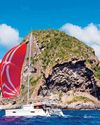
Multihull sail work
Brush up on multihull sailing skills before heading off on charter with Gavin Le Sueur's guide to spinnaker handling, tacking and gybing
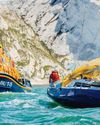
Five top causes of engine failure and how to prevent them
Jake Kavanagh talks to Sea Start marine engineer Nick Eales about how to avoid the five major causes of an engine breakdown at sea
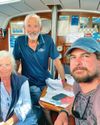
Sail the Atlantic with strangers
Would you sail across the Atlantic with someone you've just met? Ali Wood meets the cruising crews who've done just that
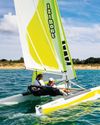
IZIBoat: simple sailing
Rupert Holmes sails an innovative catamaran design intended to widen participation in sailing among those with little time to get on the water in more conventional craft
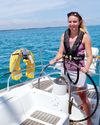
30 WAYS TO GET AFLOAT
From tall ships to small dinghies, you needn't own a boat to sail. Ali Wood looks at the options, and how skippers can also find crew
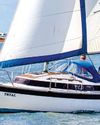
Boats for restoring under £20,000
Duncan Kent picks the best sub-35ft sail and power boats to look for when aiming to undertake a restoration on a budget
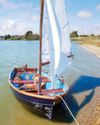
Seaworthy dinghies for less than £500
For low cost traditionally-styled GRP trailer-sailers, consider the Foreland and the Otter available at bargain basement prices
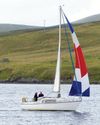
Playing with coloured sails
Maintaining an hourglass-shaped balloon and ratcheting up the log numbers